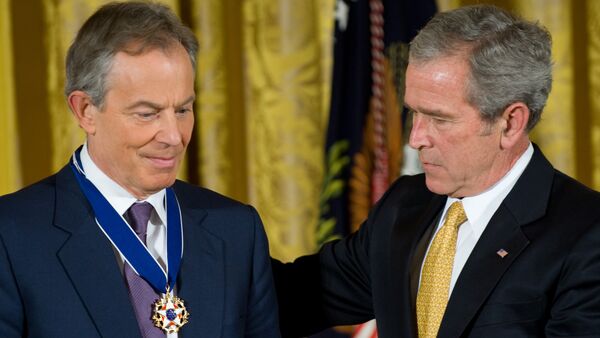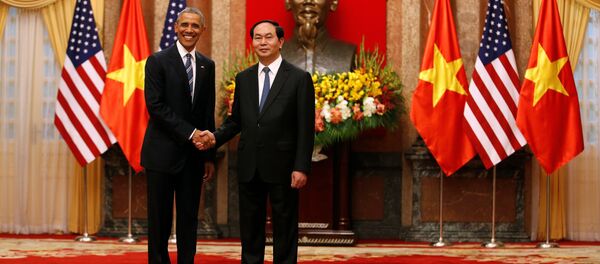At an event in Westminster on Monday, Former British Prime Minister Tony Blair admitted that he lacked a basic understanding of Middle East politics prior to advocating for the invasion of 2003 Iraq, before advocating for another, larger war in the battle-scarred region.
Admission of incompetence
"For sure we underestimated profoundly the forces that were at work in the region and would take advantage of change once you topple the regime," said Blair. "That is the lesson. The lesson is not complicated. The lesson is simple. It is that, when you remove a dictatorship, out come these forces of destabilization, whether it is al-Qaida on the Sunni side or Iran on the Shia side."
The leader refused to apologize for facilitating a multinational invasion that created immeasurable costs, both in lives and in resources for Iraq and the West, instead blaming the outcome on the sectarian government of Iraqi Prime Minister Nouri al-Maliki, beginning in 2006, which Blair suggested played a direct role in the “disaffection of Sunni Muslims” that led to the advent of Daesh.
International observers refute the former Prime Minister’s assessment, instead placing the blame firmly at the feet of the Bush and Blair administrations, and pointing to the de-Baathification process following the ouster of Saddam Hussein. That process led to the banning of all secular Ba'ath Party 'loyalists' from positions of public service, including educators, medical professionals, and engineers, effectively dismantling the country’s entire social service sector.
Blair further acknowledged that he erred in his 2011 public support of the Arab Spring uprisings, which he says combined two diametrically opposed groups – "disorganized liberal-minded people that wanted rule-based economies and tolerant societies, and, on the other side, numerous and extremely well-organized Islamists."
The retired politician pointed to his position during the Arab Spring uprisings as a positive reflection of the evolution of international affairs. He claimed that while others were clamoring for regime change by force and the implanting of a secular Western ally, he instead supported what he called a more “evolutionary solution” to regime change, led organically by the people.
"I was one of these that said 'Let us be careful.' What did we learn from Iraq? We learned that once you get rid of the dictatorship, that is the beginning of a new chapter where all these poisonous forces and influences come out and start to disrupt the situation," said Blair.
Calls for new ground war
The former prime minister, despite repeated affirmations that he lacked the requisite understanding of Middle East affairs or the foresight to contemplate the implications of interfering in nations wrought with sectarian conflict, pledged the unequivocal necessity of a new, full-scale ground invasion across the Middle East.
Blair blasted the US and Britain for failing to "take on board that there is no way of defeating [Daesh] without defeating them on the ground," while reserving compliments for Russian leadership in taking steps to contain the Syrian conflict.
He called for invading several countries concurrently to combat Daesh, saying, "Airstrikes are not going to defeat ISIS. Be in no doubt, if you want to defeat these people you are going to have to wage a proper ground war against them. The only question for us is whether we are prepared to."
The former British statesman attempted to allay skepticism by again acknowledging the consequences of the Iraq War, but asserted that a full-scale invasion of Iraq, Syria, and other Daesh strongholds was required to combat the extremists. "To be honest, my understanding of the Middle East is a lot deeper today than it was when I was prime minister."
In the midst of calling for another regional quagmire in an area already broken by sorrow and conflict, Blair made his most revealing comment, observing that the situation in Syria "is as close to a problem being without a solution right now as anything I can remember."






